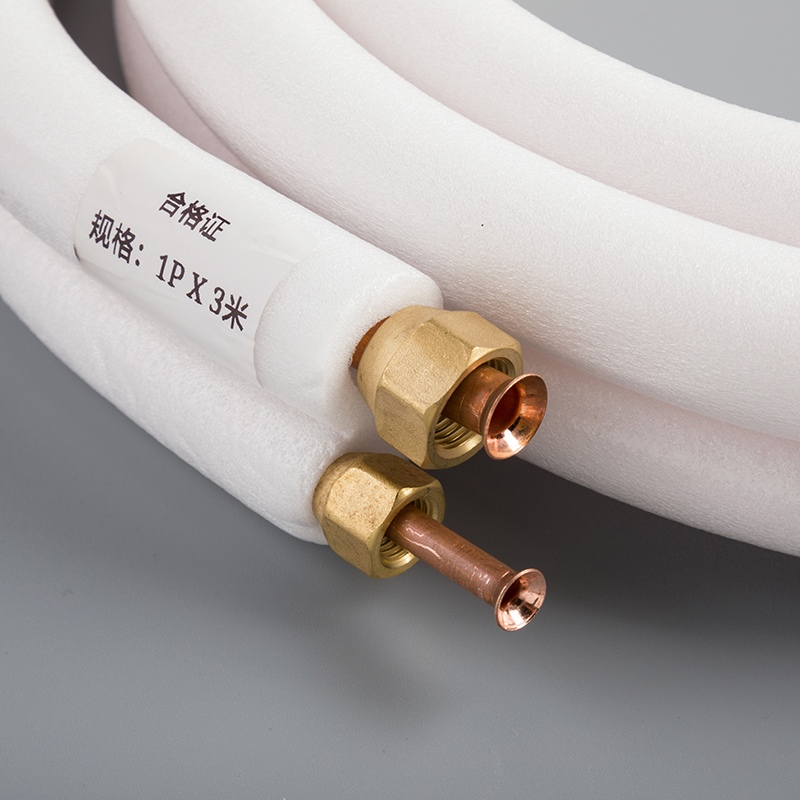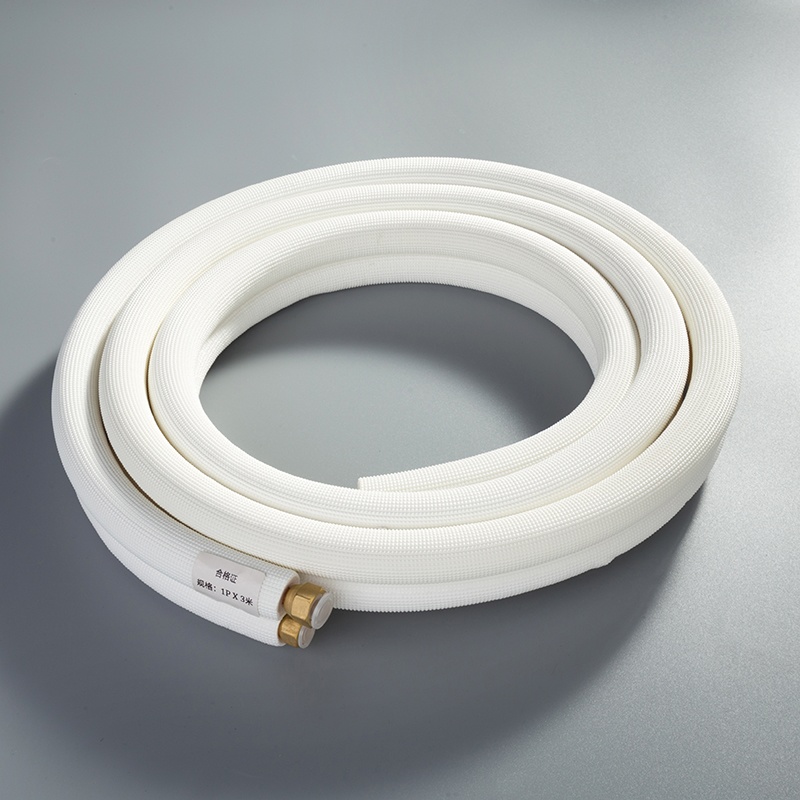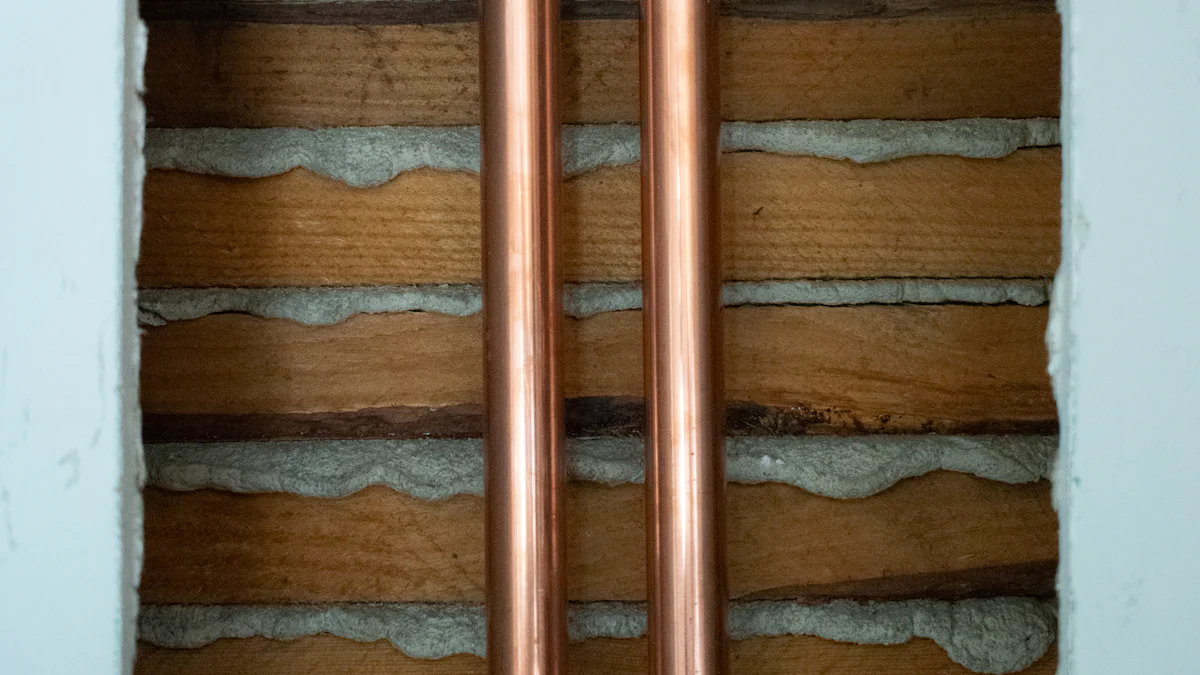Top 5 Maintenance Tips for Copper Pipe Coils

Delve into the maintenance tips for prolonging the lifespan of 1/4 3/8 twin copper pipe coils to ensure their durability and efficiency. Understanding the significance of maintaining these coils is crucial for avoiding costly repairs and replacements. By implementing the top 5 maintenance tips, you can extend the longevity of your copper pipe coils and prevent potential issues down the line.
Regular Cleaning

When it comes to maintaining copper pipe coils, regular cleaning is essential to ensure optimal performance and longevity. To effectively clean your coils, you will need specific tools for the task. Utilize Coil Cleaner products designed to remove dirt, greasy-oily soils, and grime from the coils efficiently. These cleaners are formulated with brightening agents to penetrate the metallic surface effectively, eliminating organic deposits and disinfecting the system thoroughly.
Tools Needed
To clean your copper pipe coils effectively, you will require:
Cleaning Solutions
Alkaline Coil Cleaner: Ideal for removing tough grime and dirt.
Acid Coil Cleaner: Effective in eliminating organic deposits.
Moisture Flush out Chemical: Ensures a thorough cleaning process.
Cleaning Process
Start by applying the chosen cleaner generously on the coils.
Allow the solution to sit for a recommended period to penetrate the dirt.
Use a soft brush or cloth to scrub off any stubborn residues.
Rinse the coils thoroughly with water to remove all traces of the cleaner.
Frequency of Cleaning
Maintaining a regular cleaning schedule is crucial for preserving your copper pipe coils' efficiency:
Monthly Cleaning
Perform a monthly cleaning routine using mild solutions to prevent buildup.
Annual Deep Cleaning
Annually conduct a deep cleaning process using specialized cleaners for thorough maintenance.
Inspect for Leaks
Identifying Leaks
Common Leak Areas
Green Spots: Regularly inspecting copper pipes for green patches helps in early leak detection and prevention.
Soldered Joints: Check soldered joints or fittings for any signs of leaks to prevent water damage.
Pipe Connections: Examine the connections between pipes to identify potential areas of leakage.
Signs of Leaks
Look for Water Stains: Water stains on walls or ceilings can indicate a hidden leak in the copper pipe coils.
Check for Mold Growth: Mold growth near pipes suggests moisture accumulation due to leaks.
Listen for Hissing Sounds: Hissing sounds near the pipes may indicate a leak that needs immediate attention.
Repairing Leaks
Temporary Fixes
Use a Pipe Repair Clamp: Applying a pipe repair clamp can temporarily fix small leaks until permanent solutions are implemented.
Apply Pipe Leak Tape: Pipe leak tape is a quick solution to seal minor leaks and prevent further water damage.
Permanent Solutions
Consider Resoldering Joints: Resoldering pipe joints or fittings can provide a long-term solution to persistent leaks.
Opt for Section Replacement: Replace the damaged section of the copper pipe coils to eliminate recurring leaks effectively.
Seek Professional Help: Engage professional plumbing services for complex leak issues requiring expert intervention.
Prevent Corrosion
To prevent corrosion in copper pipe coils, it is essential to apply anti-corrosion coatings and control environmental factors that contribute to degradation. Types of coatings play a crucial role in protecting the coils from oxidation and ensuring their longevity.
Anti-Corrosion Coatings
Types of Coatings
Polyurethane Coating: Provides a durable protective layer against moisture and chemicals.
Epoxy Coating: Offers excellent resistance to corrosion and abrasion.
Zinc Coating: Acts as a sacrificial layer, preventing direct contact with corrosive elements.
Application Process
Clean the surface of the copper pipe coils thoroughly to remove any dirt or contaminants.
Apply the chosen coating evenly using a brush or spray gun for uniform coverage.
Allow the coating to dry completely before exposing the coils to moisture or chemicals.
Environmental Factors
Humidity Control
Maintain optimal humidity levels in the surroundings to prevent moisture buildup on the coils.
Use dehumidifiers or ventilation systems to regulate indoor humidity levels effectively.
Avoiding Chemical Exposure
Store chemicals away from copper pipe coils to prevent direct contact and potential corrosion.
Implement proper ventilation in areas with chemical exposure to minimize the impact on the coils' integrity.
Ensure Proper Insulation

To ensure the longevity and efficiency of 1/4 3/8 twin copper pipe coils, proper insulation is essential. Two common types of insulation used for these coils are Foam Insulation and Fiberglass Insulation.
Types of Insulation
Foam Insulation
K-Flex Insulation Tubing: Available in various diameter sizes from phi 6 to phi 115 mm, providing a diverse selection for different copper pipes.
Aflex-Eco Nitrile Insulation Foam: Suitable for AC copper pipe insulation, offering tubes with different wall thicknesses to cover various pipe diameters.
Fiberglass Insulation
XLPE Insulation Tubing: Designed for copper pipes in the air conditioning industry, available in various wall thicknesses and lengths to cover pipes ranging from 6mm to 108mm in diameter.
Insulation Installation
DIY Tips
Measure the length and diameter of the copper pipe coils accurately before purchasing insulation materials.
Cut the insulation tubing to match the measurements of the coils using a sharp utility knife.
Slide the cut tubing onto the coils carefully, ensuring a snug fit without any gaps or overlaps.
Secure the ends of the tubing with adhesive tape to prevent slippage or movement over time.
Professional Help
Consult with HVAC professionals for expert advice on selecting the right type and thickness of insulation for your specific copper pipe coils.
Hire professional installers for precise and efficient installation of insulation materials to maximize energy efficiency and prevent heat loss.
Monitor Water Quality
Testing Water Quality
Testing Kits
Utilize testing kits to assess the quality of water flowing through the copper pipe coils.
Follow the instructions provided in the kit for accurate testing results.
Compare the test results with standard values to identify any deviations indicating water quality issues.
Professional Testing
Consider professional water testing services for a comprehensive analysis of your water quality.
Experts can provide detailed reports on contaminants, pH levels, and mineral content in your water supply.
Use these insights to determine suitable water treatment solutions for maintaining optimal performance of your copper pipe coils.
Water Treatment Solutions
Filtration Systems
Install filtration systems to remove impurities and sediments from the water supply.
Choose from a variety of filtration options such as activated carbon filters or reverse osmosis systems.
Regularly replace filter cartridges to ensure efficient removal of contaminants and maintain water quality standards.
Water Softeners
Implement water softeners to reduce mineral buildup in the pipes and prevent corrosion issues.
Select a suitable water softening system based on your specific water hardness levels.
Monitor and adjust the settings of the water softener periodically to optimize its performance and protect your copper pipe coils from potential damage.
Implementing regular maintenance practices is crucial for extending the lifespan of copper pipes.
Professional examination can rectify issues and prevent future leaks, ensuring optimal performance.
Replacing old pipes can save you from potential leaks and costly damages in the long run.
Maintaining proper water velocity is essential for the trouble-free service life of copper tubes.
See Also
Simple Solutions for Copper Pipe Coil Issues
Key Advice for 1/4 Copper Pipe Connectors
The Benefits of Insulating Your Copper Tubing


